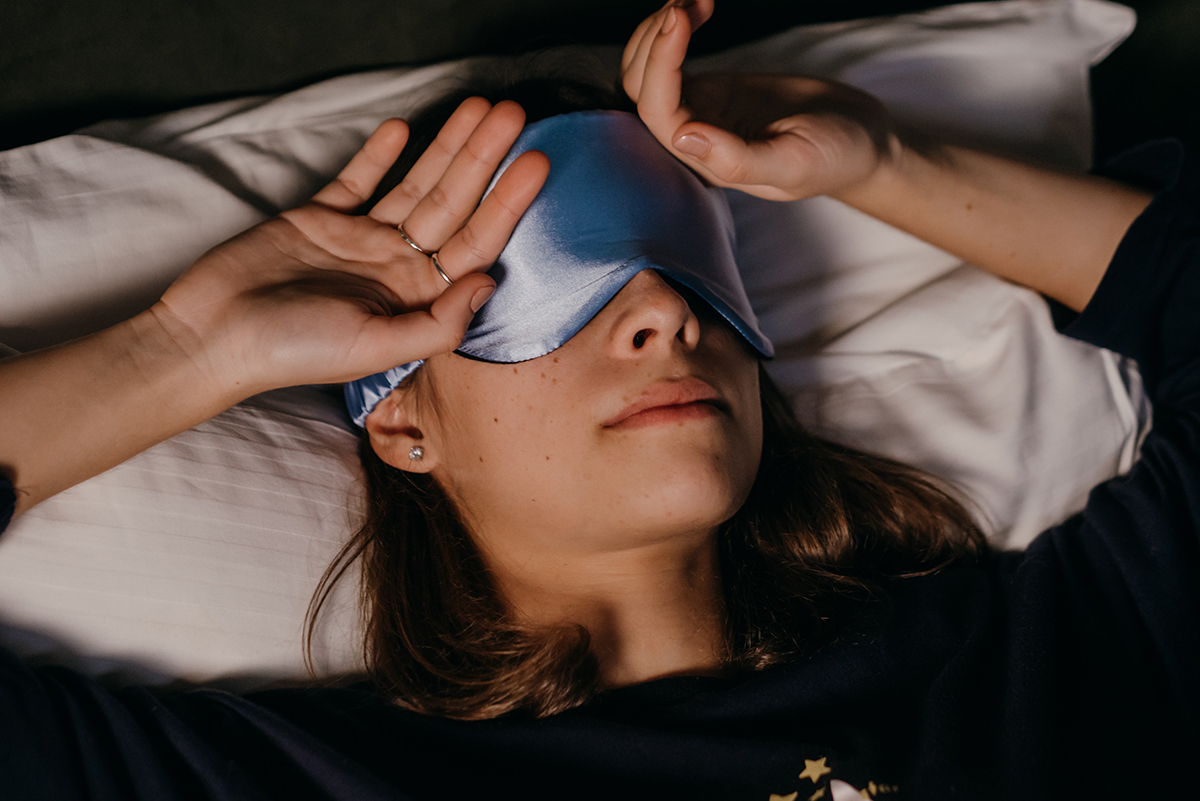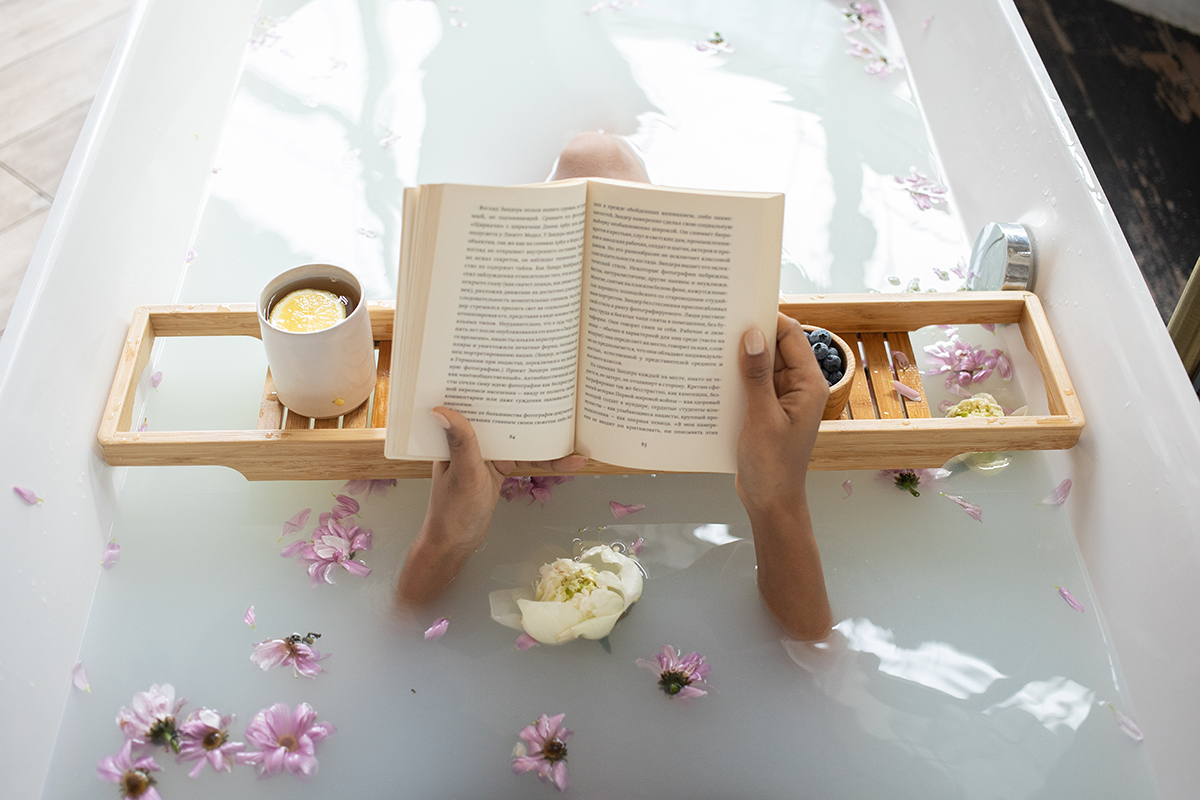There are many reasons to prioritize sleep, but the most immediate for most people is the desire to feel good the next day: awake, alert, energetic, rested, and ready for anything! Easier said than done, of course. The lure of a favorite show, social media, or work, or the obligation you may feel to finish your to-do list or to clean up after everyone, often calls louder than thoughts of how you might feel tomorrow if you would just leave it all and go to bed. But even if you manage to crawl under the covers before midnight, you may have trouble falling asleep, or you may wake up throughout the night and toss and turn, worrying about the fallout of not getting enough sleep.
It’s a real problem. According to the Sleep Foundation, over 1/3 of American adults say they get less than the minimum recommendation of 7 hours of sleep per night and that percentage rises to over 40% in older Americans. Over half say they feel tired during the day, 3 to 7 days every week. Being tired during the day is a sign that you aren’t getting enough sleep, or a high enough quality sleep.
Getting enough sleep is more important than just being able to wake up refreshed. It directly impacts stress levels, immunity, general health, and mental health. Fortunately, changing your sleep hygiene habits can make a big difference in how well you sleep tonight and every night. If you want to wake up refreshed and protect your physical and mental health, try these sleep hygiene tips, and then listen to your body. Are you sleeping better? Do you feel better in the morning? When the answers are yes, you’ll know you’ve found the sleep hygiene strategies and bedtime routine for you.
Clean, Cool, Dark, and Quiet
No, this isn’t a description of your perfect mate. This is a description of your perfect sleeping environment. You will sleep better when your room is decluttered, with a clean floor, fresh sheets, and well-dusted surfaces. Not only can this minimize allergic reactions to dust and pet hair, but it will make you feel calmer and more peaceful when you enter a beautiful clean room. Maybe add some fresh flowers and décor that makes you feel happy when you see it.
The ideal sleeping temperature is 65 degrees F, so it’s also a good idea to keep your room on the cooler side. This may be easier in winter than summer, but crank up the air during the warm months if you can, or use a fan. An open window can add to the peaceful cool ambience as well, unless you have allergies or there is ambient light and noise outside. In that case, I recommend closing your windows before you go to sleep.

Speaking of ambient light, any light at all in your bedroom can interfere with sleep. Think about how your ancestors lived before electric lights. In the evening, they snuffed the candles and fell asleep in the deep dark. I recommend removing or covering up all ambient light sources, including those little lights on electronics, from your room. If you have light coming in your window, or if you need to sleep during the day, blackout curtains are a great investment. A sleep mask can accomplish the same job.
Blue light from electronics also disrupts your circadian rhythms, inhibiting the release of sleep-inducing melatonin from your pineal gland, so avoid looking at any screens within a few hours of bedtime. If you must watch or scroll, consider wearing blue-blocking glasses in the evening.
Finally, quiet matters! If you fall asleep to the television or music, that can disrupt the quality of your sleep. Keep your room quiet, enforce quiet hours in your home after 10 pm, and if it helps, you could even use earplugs when you sleep, unless you are on call for work or you have small children and have to keep an ear out. But not all noise is disruptive. For some people, a white noise machine, or “pink noise” (like ocean, forest, or other gentle background sounds) can help.
Calm Yourself
“Winding down” is real. When you have a calm, peaceful state of mind, you will get a better sleep. About two hours before bedtime, winding down can make a huge difference in how well you sleep. That means avoiding highly stimulating activities, from exercise to watching an action-packed movie or catching up on your news feed right before bed. Instead, this is the time to schedule the warm bath, the meditation session, the journal writing, relaxed family time, or romantic interludes with your partner.
Even better, organize your winding-down activities into a routine. There is nothing more calming than a routine because when practiced regularly, a routine gets you into a rhythm. Your body knows what to expect. You are sending signals to your body that every time you do this series of things, (the bath, reading a novel, praying, cuddling), sleep is coming. You’ll automatically start getting sleepy when your body senses that this familiar bedtime routine has begun.

To create a routine, don’t think about what you should do. Think about what actually makes you feel calm and relaxed. If you hate taking baths, don’t do that. If you aren’t into reading, skip it. If gentle exercise feels better to you than meditating, choose the gentle exercise. Everyone is different and your routine should feel like your routine, not a homework assignment. If you are having trouble getting focused, it might help to create a to-do list for the next day, just to get those nagging obligations out of your mind and onto paper (or your phone) so you can put those aside for now and tackle them tomorrow when you are fresh.
Getting a better quality sleep, which means more time in REM (dream) sleep and more time in deep sleep, translates to more thorough detoxification of the body and brain, better memory consolidation, faster healing and repair, and a better mood and state of mind and body when you wake up the next morning. If you can begin to think about how refreshed you could feel in the morning when making those nighttime decisions, you may feel more motivated to commit to good sleep hygiene. It’s your choice: Do you want to feel cheerful and energetic or cranky and tired tomorrow morning? Getting in the habit of getting a good sleep is like anything else—the more you do it, the easier it gets. Why not start tonight?


